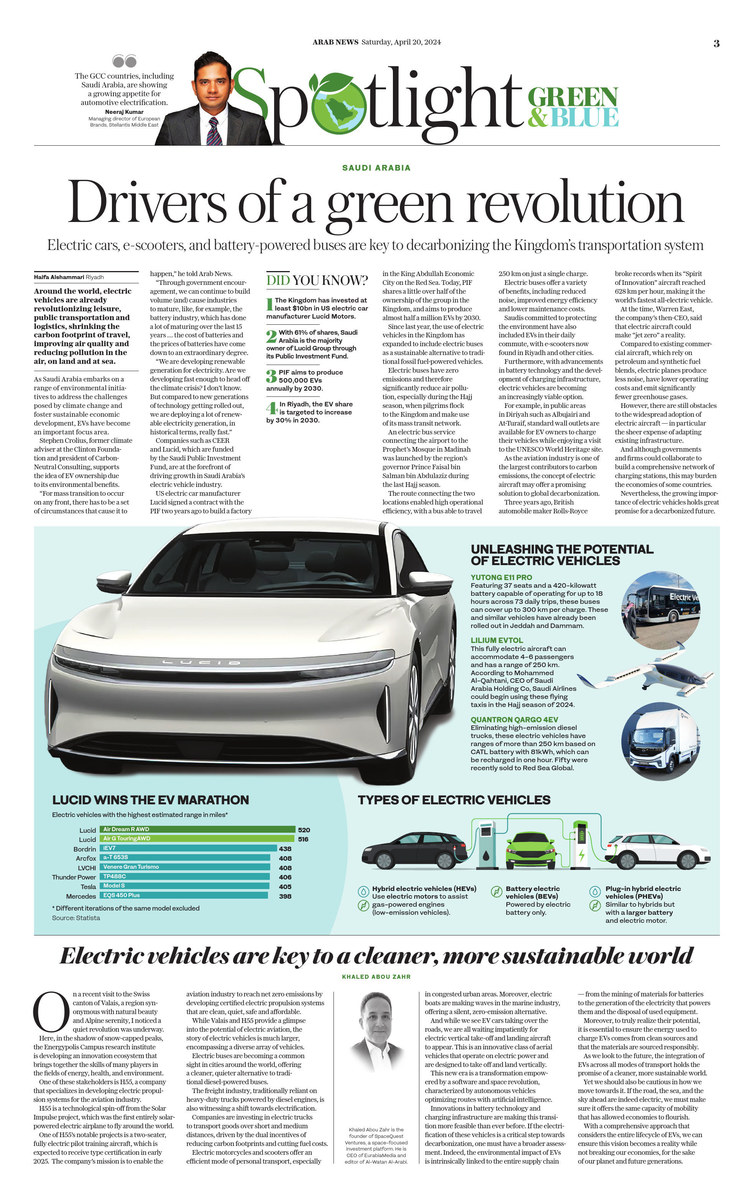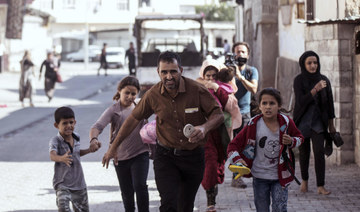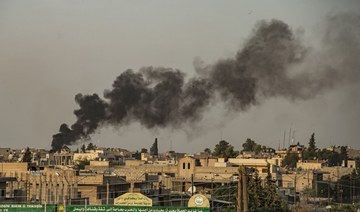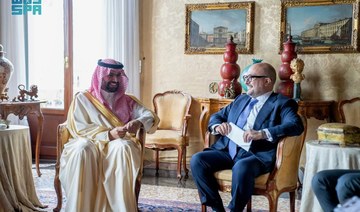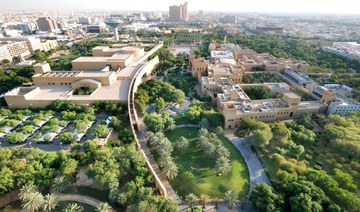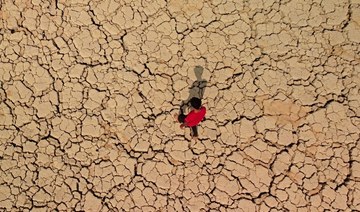AKÇAKALE, Turkey: Turkey Friday reported the first death of one of its soldiers in its operation in northern Syria, during clashes with a Kurdish militia following a day of heavy shelling on both sides.
Three more soldiers were injured in the “operation region,” the defense ministry said in a statement after the clashes on Thursday, without giving further detail.
First Turkish soldier killed during Syria operation: defense ministry
First Turkish soldier killed during Syria operation: defense ministry
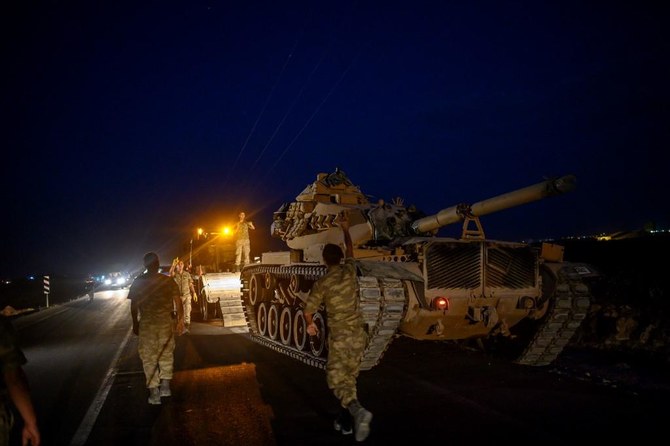
- Three more soldiers were injured in the ‘operation region’
Saudi chair of IMFC acknowledges impact of global crises, says they should be discussed in other forums
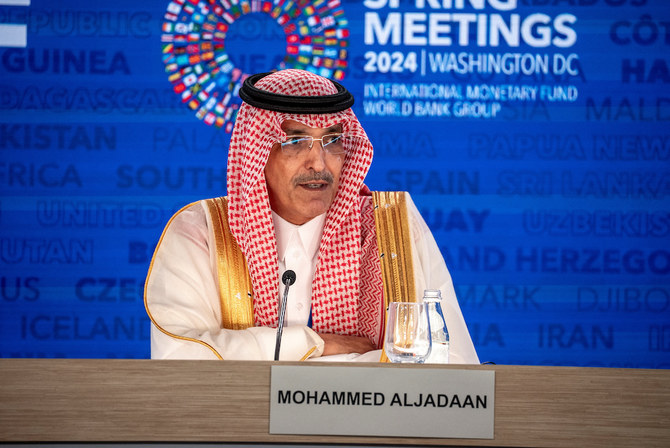
- Thanks expressed to outgoing chair Nadia Calvino for her leadership
RIYADH: The International Monetary and Financial Committee on Friday held its biannual meeting in Washington DC to discuss the global macroeconomic and financial impact of current conflicts.
The IMFC members focused on the war in Ukraine, the humanitarian crisis in Gaza, and shipping disruptions in the Red Sea, said Mohammed Al-Jadaan, the Saudi minister of finance and the body’s chair.
Al-Jadaan said IMFC members acknowledged that the crises had significant impacts on the global economy, but added that the body was not the forum to resolve geopolitical and security issues, and that they should be discussed in other forums.
He said: “The IMFC’s role is to advise and report on the supervision and management of the international monetary and financial system. This includes responses to events that may disrupt the system.
“Of course, the world and the IMF (International Monetary Fund) itself have faced multiple global disruptions over the last few years. Prospects are improving, which is very positive, but numerous challenges remain, and we need to be vigilant and ready to address them. Today’s era must not be of war and conflict.”
The Saudi minister chairs the IMFC, the policy advisory body to the IMF’s board of governors, and was speaking during the committee’s gathering at the Spring Meetings of the IMF and World Bank.
The IMFC thanked outgoing chair Nadia Calvino for her leadership and welcomed Al-Jadaan as her replacement.
Al-Jadaan said: “A soft landing for the global economy appears to be drawing closer.
“Economic activity has proved more resilient than expected in many parts of the world, though it continues to diverge across countries.”
But as ongoing conflicts continue to burden the global economy, this has led to some weak growth prospects in the medium term.
Al-Jadaan said: “Even though inflation has fallen in most regions, owing to the unwinding of supply shocks and the effects of tight monetary policy, its persistence warrants caution.
“While risks to the outlook are now broadly balanced, downside risks remain, hinging on the near-term paths for inflation and interest rates, asset prices and financial stability, fiscal policy actions, as well as geopolitical developments.”
Other pressing challenges were also affecting the global economy, such as climate change, elevated debt vulnerabilities, rising inequality, and the risk of geoeconomic fragmentation, he added.
The Saudi minister said: “Against this background, our policy priorities are to achieve price stability, strengthen fiscal sustainability, and safeguard financial stability, while promoting inclusive and sustainable growth.
“We will proceed with rebuilding fiscal buffers, carefully tailoring actions to country-specific circumstances, while protecting the most vulnerable and growth-enhancing investment.”
Al-Jadaan said central banks remained strongly committed to achieving price stability and would continue to communicate policy objectives to help limit negative spillovers.
He added: “We continue working to address data, supervisory, and regulatory gaps in the financial sector, especially nonbank financial institutions, where relevant, and stand ready to deploy macroprudential policy tools to mitigate systemic risks.”
He said the IMF stresses the importance of international cooperation to improve the resilience of the global economy and the international monetary system, adding that members will “act collectively, as appropriate, to support climate and digital transitions, including artificial intelligence, while accounting for country-specific circumstances.”
During the meeting, which was held in the presence of the IMF’s Managing Director Kristalina Georgieva, Al-Jadaan reiterated the IMF’s commitments on exchange rates, addressing excessive global imbalances, governance, and avoiding protectionist measures.
He said: “We will also continue working together to strengthen the global financial safety net, address global debt vulnerabilities (and support) vulnerable countries as they undertake reforms to tackle their vulnerabilities and address their financing needs.”
Al-Jadaan also said the IMF would continue its “critical and catalytic role in providing financial assistance to help members address their balance of payments problems and achieve economic stability and inclusive growth.”
He added that the body was looking to welcome a new 25th chair on the IMF’s Executive Board for Sub-Saharan Africa in November to improve representation and the overall balance of regional representation.
He said: “We support the IMF’s strengthened efforts to attract and develop talent to support existing and new priority areas, and to further improve staff diversity and inclusion, responding to the specific challenges identified in the FY2022-FY2023 Diversity and Inclusion Report.”
He also announced that the next IMFC 24 members’ meeting was expected to be held in October. Representatives usually meet twice a year, at the Bank-Fund Annual and Spring Meetings, to outline the proposed agenda for the IMF’s work program.
KL Rahul shines as Lucknow Super Giants beat Chennai Super Kings in IPL

- Innings played key role in pushing Lucknow past Chennai’s 176-6 with six balls to spare.
LUCKNOW: KL Rahul’s solid 82 runs off 53 balls helped Lucknow Super Giants comfortably beat Chennai Super Kings by eight wickets in the IPL on Friday.
Rahul’s time at the crease, which saw him smash nine fours and three sixes, played a key role in pushing Lucknow past Chennai’s 176-6 with six balls to spare.
“I felt that if we bat well, we could chase it down... when your partnership goes on, you can take a few more chances. Glad that it happened,” said Rahul.
Chennai got off to a slightly jittery start after being invited to bat first, losing Rachin Ravindra (zero) and skipper Ruturaj Gaikwad (17) in the first five overs. Ajinkya Rahane looked to steady the side, with the help of Ravindra Jadeja, but fell in the ninth over after racking up a respectable 36 runs off 24 balls.
Lucknow’s clinical bowling restricted Chennai in the middle overs, with Shivam Dube (three) not being able to pop off.
But Jadeja soldiered on for the rest of the game, getting his half-century in the seventeenth over.
Reliable warhorse M.S. Dhoni, who smacked 28 runs off 9 balls, helped Chennai turn up the heat in the last three overs and pushed the team to 176-6.
Lucknow openers Quinton de Kock and KL Rahul set up the chase with a superb 134-run partnership, before de Kock, who hit five fours in his 43-ball 54, fell in the fifteenth over.
Rahul went onto smash an incredible 82 runs off 53 balls before being dismissed in the eighteenth over. A final push by Nicholas Pooran (23) helped seal the victory for Lucknow.
“We lost wickets regularly and were 10-15 short,” said Gaikwad.
“Good to play them again soon, will come back with homework done.”
Leaders of Jordan and Pakistan call UAE president to express concern about effects of severe storm

- Leaders passed on their best wishes to the country as it recovers from the storms
DUBAI: The president of the UAE, Sheikh Mohammed bin Zayed Al-Nahyan, received telephone calls from King Abdullah of Jordan and Pakistan’s Prime Minister Shehbaz Sharif on Friday, during which they expressed concern about the effects of the severe weather, including unusually heavy rainfall, that battered parts of the country this week.
They also passed on their best wishes to the country as it recovers from the storms and “conveyed their heartfelt hopes for the safety and prosperity of the UAE and its people, praying for their protection from any harm,” the Emirates News Agency reported.
Sheikh Mohammed thanked both leaders for their warm sentiments, and emphasized the strong bonds between the UAE and their nations.
The UAE and neighboring Oman were hit by unprecedented rainfall and flooding on Tuesday, with more than 250 millimeters of rain falling in parts of the Emirates, considerably more than is normally seen in a year. Dubai International Airport was forced to close temporarily when runways were flooded.
Saudi Arabia’s PIF signs sponsorship deal with Mutua Madrid Open tennis tournament

- Agreement is latest in wider partnership with the ATP
LONDON: Saudi Arabia’s Public Investment Fund announced on Friday it had agreed a multi-year deal to sponsor the Mutua Madrid Open tennis tournament.
The deal is the latest in PIF’s wider tennis partnership with the Association of Tennis Professionals as a Platinum Partner and as the official naming partner of the PIF ATP Rankings.
The fund said the agreement marked its continued investment in growing tennis globally, along with a wider focus on its four sponsorship pillars: inclusivity, sustainability, youth, and technology.
As part of the partnership, PIF will develop a platform to allow tennis fans new and old to engage and train with legendary players and coaches on the ground in Madrid, and youth-focused fan zones.
A statement said: “PIF is committed to providing opportunities for young players across all levels of the game, inspiring participation, enhancing talent discovery and developing new pathways for future generations of tennis players around the world.
“As part of this priority, PIF is engaging local tennis academies in Spain and supporting future players through the PIF tennis bootcamp.”
PIF has also partnered with ATP Masters 1000 events in Indian Wells, Miami and the Nitto ATP Finals, in addition to the Beijing ATP 500 event, and the Next Gen ATP Finals presented by PIF, to be hosted in Jeddah until 2027.
How the adoption of electric vehicles is driving Saudi Arabia’s green agenda
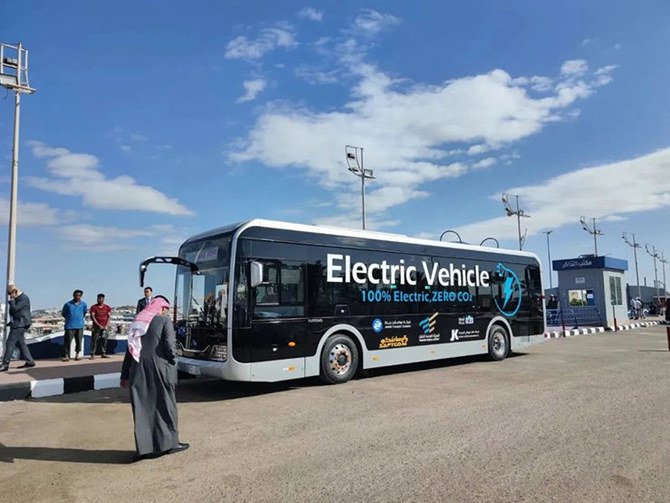
- Saudi Arabia’s Public Investment Fund wants to produce half a million electric vehicles by 2030
- The Kingdom has installed charging outlets in public areas in Diriyah to encourage EV ownership
RIYADH: Around the world, electric vehicles are already revolutionizing leisure, public transportation and logistics, shrinking the carbon footprint of travel, improving air quality and reducing pollution in the air, on land and in the sea.
As Saudi Arabia embarks on a range of environmental initiatives designed to address the challenges posed by climate change and foster sustainable economic development, EVs have become an important focus area.
The shift from traditional combustion engine vehicles to new electric models has accelerated worldwide as companies and consumers opt for greener modes of transport. Saudi Arabia is no exception.

The transition from regular cars to electric vehicles in the Kingdom is flourishing. The EV trend has gone beyond personal vehicle ownership, with the proliferation of everything from e-scooters to electric buses.
There are even discussions around whether EV technology will soon be applied to aircraft and perhaps space travel.
Stephen Crolius, former climate adviser at the Clinton Foundation and current president of Carbon-Neutral Consulting, supports the idea of EV ownership due to its environmental benefits.
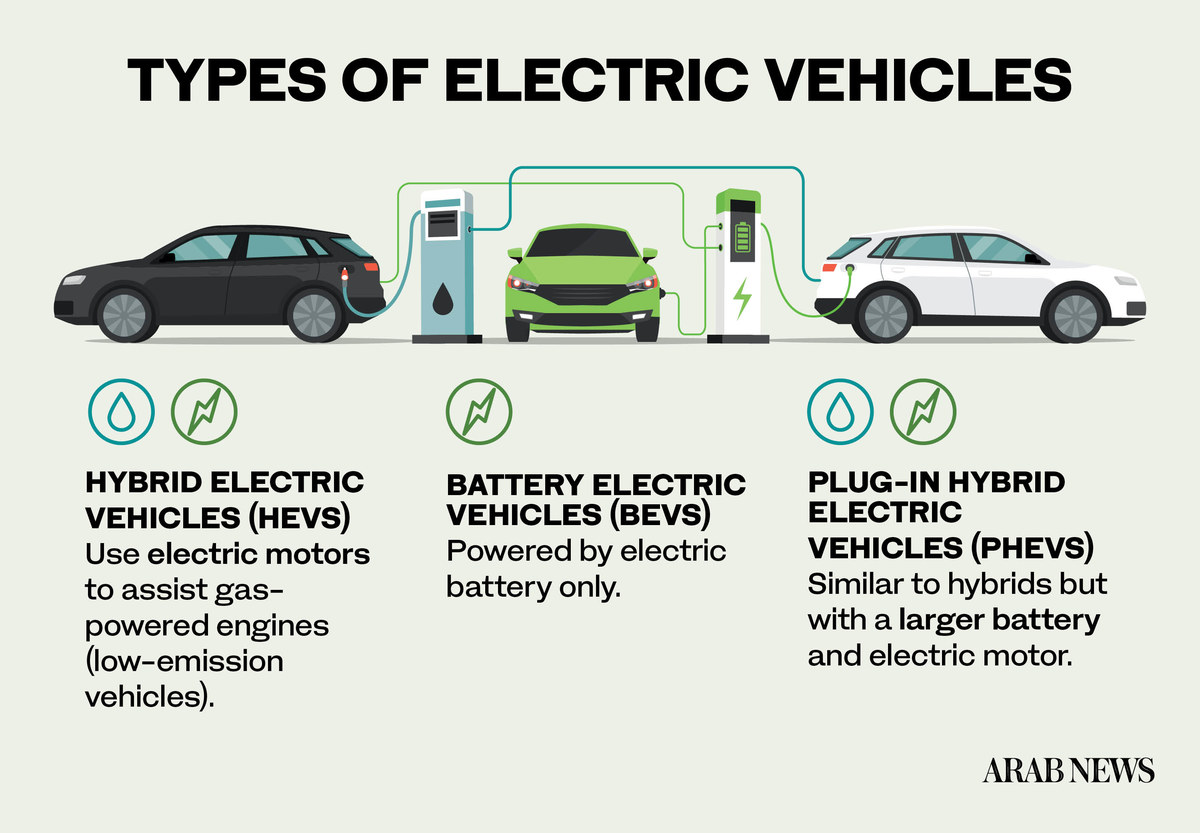
Although it might still be a challenge to educate the public in some societies about the benefits of transitioning to EVs, Crolius says the advantages outweigh the disadvantages.
“For mass transition to occur on any front, there has to be a set of circumstances that cause it to happen,” he told Arab News.
“Through government encouragement, we can continue to build volume (and) cause industries to mature, like, for example, the battery industry, which has done a lot of maturing over the last 15 years … the cost of batteries and the prices of batteries have come down to an extraordinary degree.
Opinion
This section contains relevant reference points, placed in (Opinion field)
“We are developing renewable generation for electricity. Are we developing fast enough to head off the climate crisis? I don’t know. But compared to new generations of technology getting rolled out, we are deploying a lot of renewable electricity generation, in historical terms, really fast.”
Companies such as CEER and Lucid, which are heavily funded by the Saudi Public Investment Fund, are at the forefront of driving growth in Saudi Arabia’s electric vehicle industry.
US electric car manufacturer Lucid signed a contract with the PIF two years ago to build a factory in the King Abdullah Economic City on the Red Sea. Today, PIF shares a little over half of the ownership of the group in the Kingdom, and aims to produce almost half a million EVs by 2030.
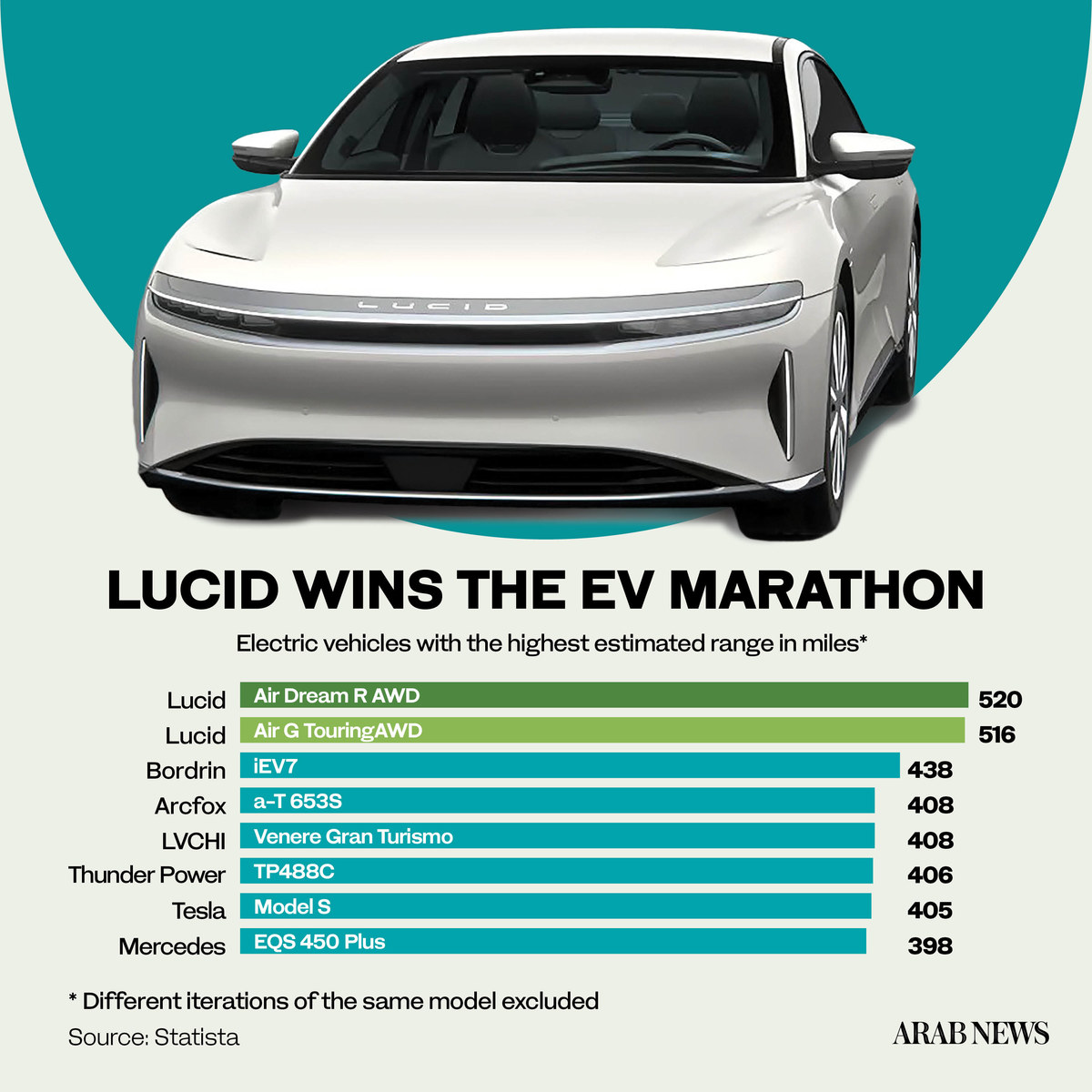
Since last year, the use of electric vehicles in the Kingdom has expanded to include electric buses as a sustainable alternative to traditional fossil fuel-powered vehicles.
Electric buses have zero emissions and therefore significantly reduce air pollution and greenhouse gases in urban areas, especially during the Hajj season, when pilgrims flock to the Kingdom and make use of its mass transit network.
An electric bus service connecting the airport to the Prophet’s Mosque in Madinah was launched by the region’s governor Prince Faisal bin Salman bin Abdulaziz during the last Hajj season.
DID YOUKNOW
• The Kingdom has invested at least $10 billion in US electric car manufacturer Lucid Motors.
• With 61% of shares, Saudi Arabia is the majority owner of Lucid Group through its Public Investment Fund.
• PIF aims to produce 500,000 EVs annually by 2030.
• In Riyadh, the EV share is targeted to increase by 30% in 2030.
The route connecting the two locations enabled high operational efficiency, with a bus able to travel 250 km on just a single charge.
Electric buses offer a variety of benefits, including reduced noise, improved energy efficiency and lower maintenance costs. In addition, they have a smaller carbon footprint, which is a crucial step toward sustainability.
Saudis committed to protecting the environment have also included EVs in their daily commute, with e-scooters now found in Riyadh and other cities. E-scooters provide an eco-friendly solution to local transport by cutting toxic emissions and lowering noise pollution.
Offering e-scooter services in various locations in Riyadh is a clear sign of the Kingdom’s eagerness to not only set regulations and promote electric vehicles, but also lead society in adopting a positive attitude toward sustainable living.
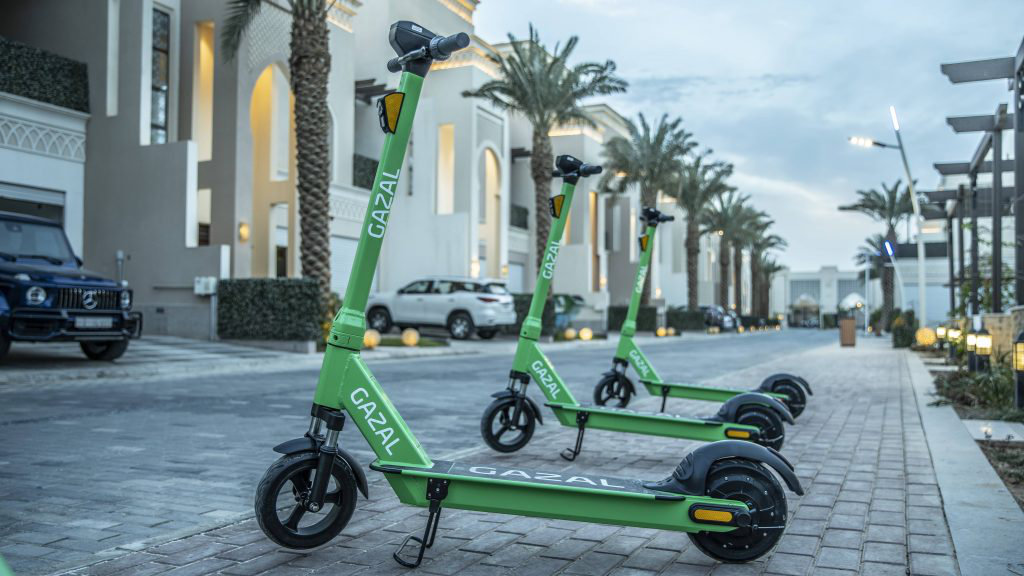
Furthermore, with advancements in battery technology and the development of charging infrastructure, electric vehicles are becoming a viable option for companies aiming to decarbonize their operations.
For example, in public areas in Diriyah such as Albujairi and At-Turaif, standard wall outlets are available for EV owners to charge their vehicles while enjoying a visit to the UNESCO World Heritage site.
As the aviation industry is one of the largest contributors to carbon emissions, the concept of electric aircraft may offer a promising solution to global decarbonization.
Three years ago, British automobile maker Rolls-Royce broke records when its “Spirit of Innovation” aircraft reached 628 km per hour, making it the world’s fastest all-electric vehicle.
At the time, Warren East, the company’s then-CEO, said that electric aircraft could make “jet zero” a reality and help decarbonize all forms of transport.
Compared to existing commercial aircraft, which rely on petroleum and synthetic fuel blends, electric planes produce less noise, have lower operating costs and emit significantly fewer greenhouse gases.
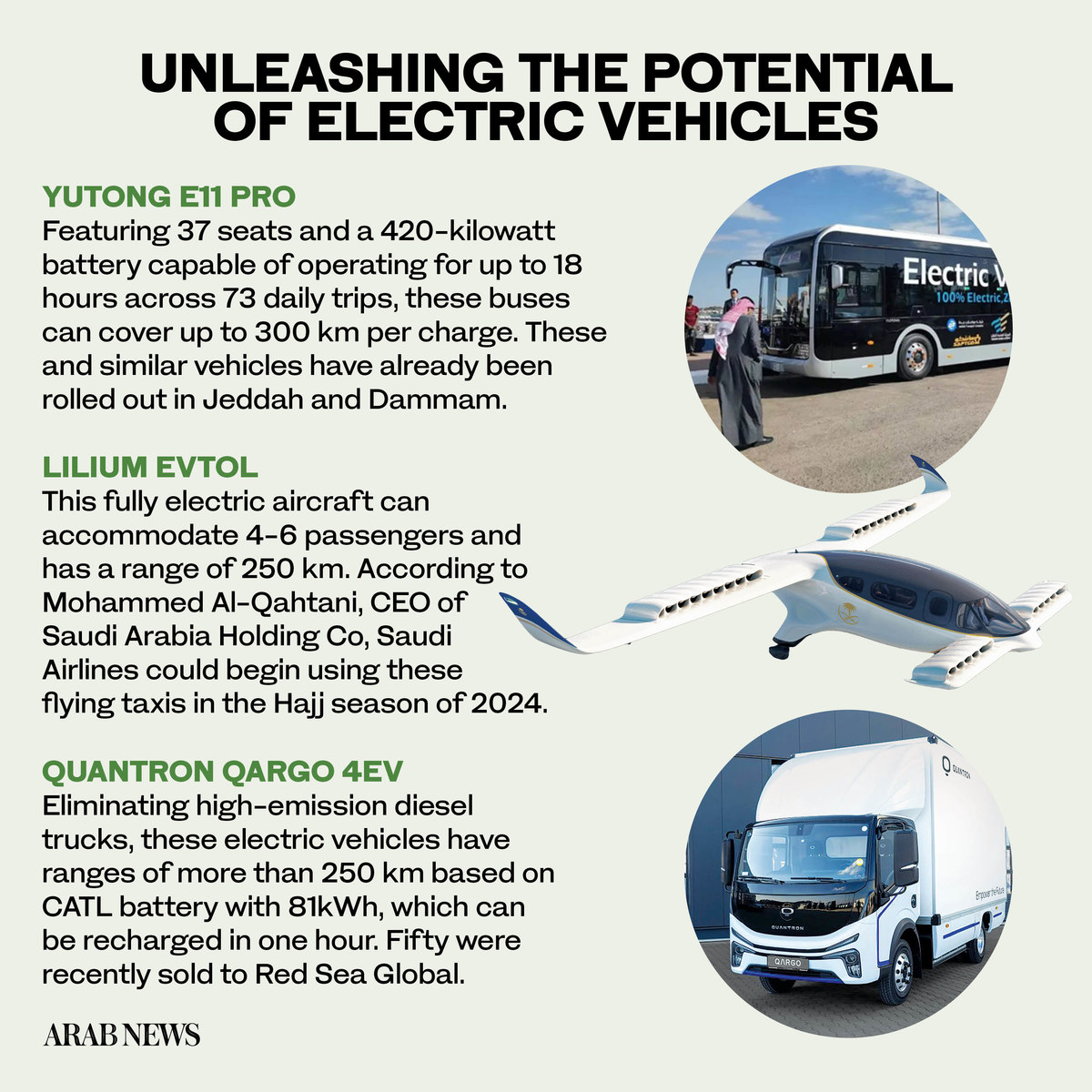
However, there are still several obstacles to the widespread adoption of electric aircraft — in particular the sheer expense of adapting the existing infrastructure needed to support their use.
Though governments and private companies worldwide could collaborate and build a comprehensive network of charging stations to meet growing demand, this may burden the economies of some countries.
Nevertheless, the growing importance of electric vehicles beyond cars, such as buses, electric scooters and airplanes, holds great promise for a decarbonized future.
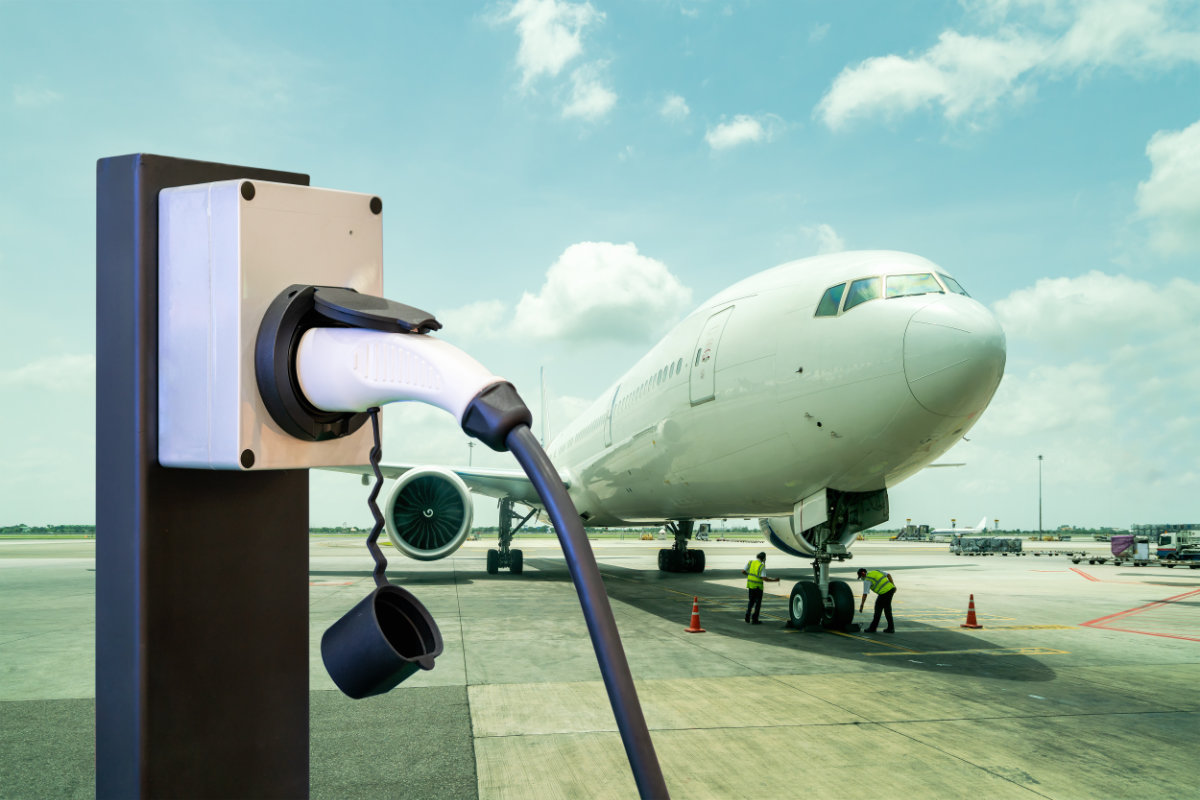
Utilizing alternative sources of energy in these areas can change the carbon emissions game for the better, fight air pollution, and pave the way for sustainable transport systems in the Kingdom and around the world.
To realize the full potential of electric vehicles, however, governments and businesses will first have to address challenges such as the provision of sufficient charging infrastructure as well as range limitations in battery technology.
Through continued innovation and investment, electric vehicles will play a key role in creating a greener and more sustainable future.
